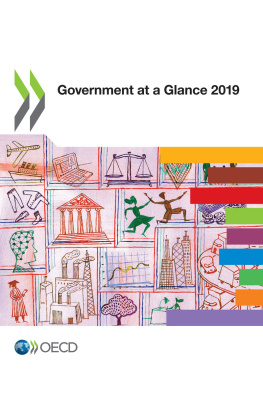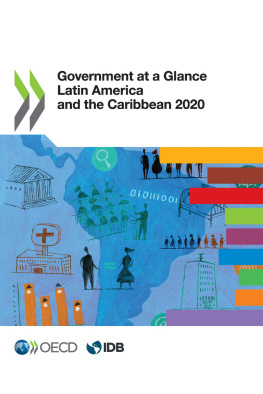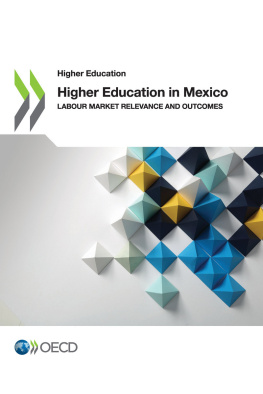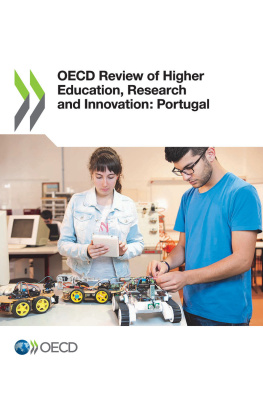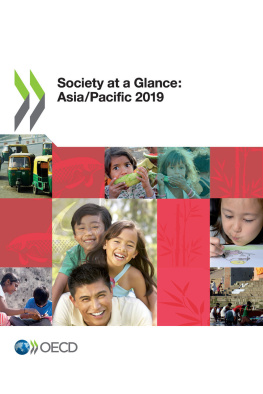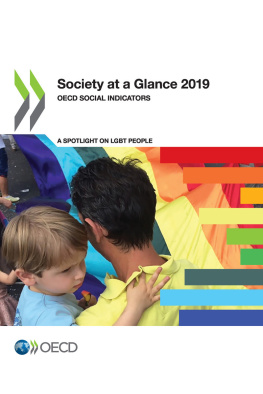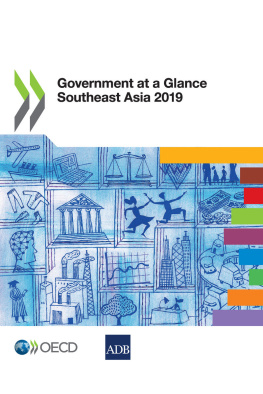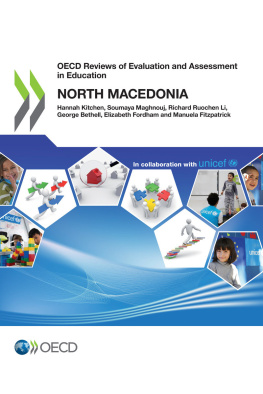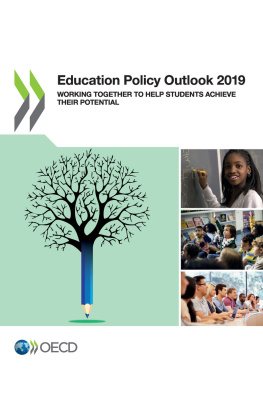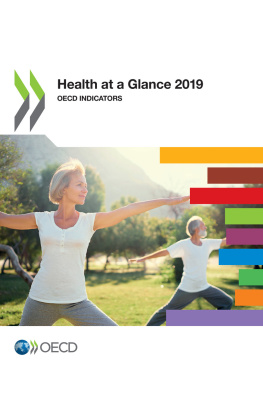OECD - Education at a Glance 2019
Here you can read online OECD - Education at a Glance 2019 full text of the book (entire story) in english for free. Download pdf and epub, get meaning, cover and reviews about this ebook. year: 2019, publisher: OECD Publishing, genre: Politics. Description of the work, (preface) as well as reviews are available. Best literature library LitArk.com created for fans of good reading and offers a wide selection of genres:
Romance novel
Science fiction
Adventure
Detective
Science
History
Home and family
Prose
Art
Politics
Computer
Non-fiction
Religion
Business
Children
Humor
Choose a favorite category and find really read worthwhile books. Enjoy immersion in the world of imagination, feel the emotions of the characters or learn something new for yourself, make an fascinating discovery.
Education at a Glance 2019: summary, description and annotation
We offer to read an annotation, description, summary or preface (depends on what the author of the book "Education at a Glance 2019" wrote himself). If you haven't found the necessary information about the book — write in the comments, we will try to find it.
OECD: author's other books
Who wrote Education at a Glance 2019? Find out the surname, the name of the author of the book and a list of all author's works by series.
Education at a Glance 2019 — read online for free the complete book (whole text) full work
Below is the text of the book, divided by pages. System saving the place of the last page read, allows you to conveniently read the book "Education at a Glance 2019" online for free, without having to search again every time where you left off. Put a bookmark, and you can go to the page where you finished reading at any time.
Font size:
Interval:
Bookmark:
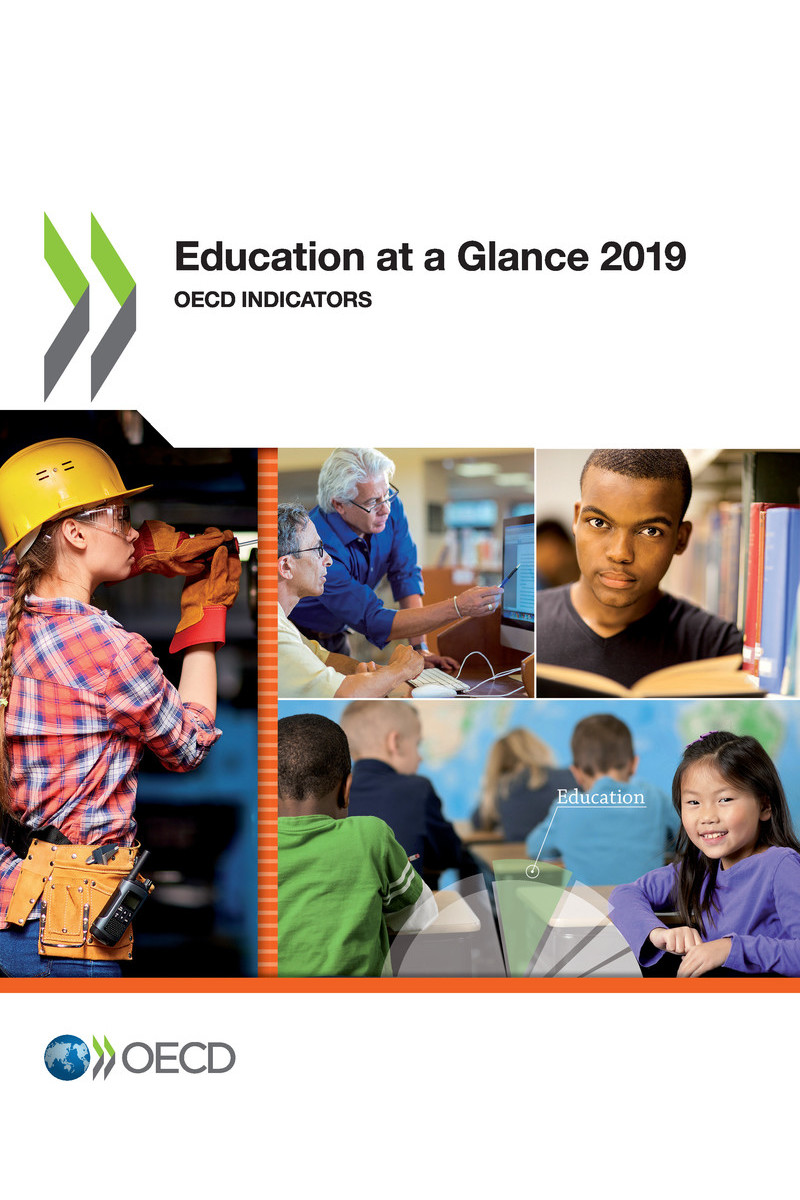
OECD (2019), Education at a Glance 2019: OECD Indicators , OECD Publishing, Paris, https://doi.org/10.1787/f8d7880d-en .
Governments are increasingly looking to international comparisons of education opportunities and outcomes as they develop policies to enhance individuals social and economic prospects, provide incentives for greater efficiency in schooling, and help to mobilise resources to meet rising demands. The OECD Directorate for Education and Skills contributes to these efforts by developing and analysing the quantitative, internationally comparable indicators that it publishes annually in Education at a Glance. Together with OECD country policy reviews, these indicators can be used to assist governments in building more effective and equitable education systems.
Education at a Glance addresses the needs of a range of users, from governments seeking to learn policy lessons to academics requiring data for further analysis to the general public wanting to monitor how their countries schools are progressing in producing world-class students. The publication examines the quality of learning outcomes, the policy levers and contextual factors that shape these outcomes, and the broader private and social returns that accrue to investments in education.
Education at a Glance is the product of a long-standing, collaborative effort between OECD governments, the experts and institutions working within the framework of the OECD Indicators of Education Systems (INES) programme, and the OECD Secretariat. The publication was prepared by the staff of the Innovation and Measuring Progress Division of the OECD Directorate for Education and Skills, under the responsibility of Deborah Roseveare and Marie-Hlne Doumet, and in co-operation with tienne Albiser, Majda Benzidia, Andrea Borlizzi, ric Charbonnier, Manon Costinot, Gillian Golden, Bruce Golding, Fatine Guedira, Corinne Heckmann, Karinne Logez, Camila de Moraes, Simon Normandeau, Gara Rojas Gonzlez, Daniel Snchez Serra, Markus Schwabe, Giovanni Maria Semeraro, and Choyi Whang. Administrative support was provided by Valrie Forges, and additional advice and analytical support were provided by Vanessa Denis, Majda Eddaifi, Yanjun Guo, Julia Himstedt and Hajar Sabrina Yassine. Marilyn Achiron, Cassandra Davis and Sophie Limoges provided valuable support in the editorial and production process. The development of the publication was steered by member countries through the INES Working Party and facilitated by the INES Networks. The members of the various bodies as well as the individual experts who have contributed to this publication and to OECD INES more generally are listed at the end of the book.
While much progress has been made in recent years, member countries and the OECD continue to strive to strengthen the link between policy needs and the best available internationally comparable data. This presents various challenges and trade-offs. First, the indicators need to respond to education issues that are high on national policy agendas, and where the international comparative perspective can offer added value to what can be accomplished through national analysis and evaluation. Second, while the indicators should be as comparable as possible, they also need to be as country-specific as is necessary to allow for historical, systemic and cultural differences between countries. Third, the indicators need to be presented in as straightforward a manner as possible, while remaining sufficiently complex to reflect multi-faceted realities. Fourth, there is a general desire to keep the indicator set as small as possible, but it needs to be large enough to be useful to policy makers across countries that face different challenges in education.
The OECD will continue not only to address these challenges vigorously and develop indicators in areas where it is feasible and promising to develop data, but also to advance in areas where a considerable investment still needs to be made in conceptual work. The OECD Programme for International Student Assessment (PISA) and its extension through the OECD Programme for the International Assessment of Adult Competencies (Survey of Adult Skills [PIAAC]), as well as the OECD Teaching and Learning International Survey (TALIS), are major efforts to this end.
As countries struggle to respond to economic, environmental and social transformations including technological advances, climate change and migration intellectual capital has become the most valuable asset of our time. The core of intellectual capital is knowledge, and the development and transfer of knowledge is the primary mission of higher education. Tertiary education thus plays a central role in helping people and societies confront and cope with these profound changes.
The demand for higher-order skills and competencies is both economic and social. The employment rate of adults with a tertiary degree is about 9 percentage points higher than for those with upper secondary education only, and they earn on average 57% more. Tertiary-educated adults are also more likely to be in good health, take care of the environment, or participate in public life.
Yet with these great strides comes greater uncertainty. Although the rise of artificial intelligence is expected to result in increased productivity in a number of sectors, it is also fundamentally changing the way some jobs are carried out. While widespread access to information has made it easier to learn than ever before, it has also accelerated the pace of change, leaving many wondering how to adapt and struggling to keep up. Globalisation, while providing many opportunities, has also triggered fierce competition for skills.
Font size:
Interval:
Bookmark:
Similar books «Education at a Glance 2019»
Look at similar books to Education at a Glance 2019. We have selected literature similar in name and meaning in the hope of providing readers with more options to find new, interesting, not yet read works.
Discussion, reviews of the book Education at a Glance 2019 and just readers' own opinions. Leave your comments, write what you think about the work, its meaning or the main characters. Specify what exactly you liked and what you didn't like, and why you think so.








